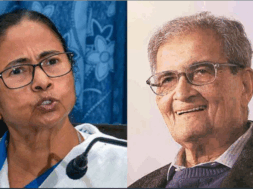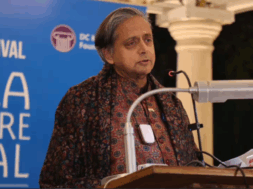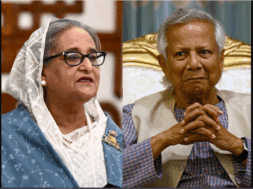
Gaming: Centre asks online firms to cough up Rs. one lakh crore as GST
Virendra Pandit
New Delhi: A month after cracking the whip on several online gaming companies, the Centre has served show-cause notices to them to pay GST to the tune of Rs. one trillion (one lakh crore).
India’s cricket maniacs, who fell for celebrities endorsing online games, have reportedly ended up losing billions of rupees to these companies which mushroomed in recent months and flourished in the cricket season this year. Online gaming, hardly distinguishable from online gambling, has made millions of people, especially youth, addicts, with celebrities exhorting them to try their luck, the media reported.
The GST Council had, in August, announced that a 28 percent GST would be levied on the full value of bets placed on online platforms.
In September, the government cracked the whip on these companies.
According to reports, the GST authorities have since issued show-cause notices worth Rs 1 lakh crore to online gaming companies for tax evasion so far.
The government also amended the GST law, making it mandatory for overseas online gaming companies to register in India from October 1. But there is no data yet on foreign gaming companies registering in India so far.
A host of online gaming platforms, like Dream11, and casino operators, like Delta Corp, received GST show-cause notices last month for alleged short payment of taxes.
Dream11, the gaming unicorn that has celebrities as brand ambassadors, is said to have been served the largest notice for tax dues worth Rs. 25,000 crores.
In September, the government slapped on Delta Corp a notice for taxes to the tune of Rs 11,139 crore, along with interest and penalty, for allegedly not paying GST on the gross bet value.
Earlier, the officials had, in September 2022 itself, served a show-cause notice to Bengaluru-based GamesKraft Technology for alleged GST evasion of Rs 21,000 crore, in what was then the biggest such claim in the history of indirect taxation.
While the Karnataka High Court ruled in favor of the company, the Centre in July filed a Special Leave Petition (SLP) in the Supreme Court to challenge it.
Virtual ‘gambling’, camouflaged as gaming, finally came under the scanner of the Directorate-General of GST Intelligence (DGGI) in September when it started cracking the whip with tax notices worth Rs. 55,000 crores sent to a dozen online real money gaming firms over their tax dues.
Besides online gaming firms, the DGGI is also booking casino operators who are evading taxes.
Under the new rules, the tax will be imposed on the money paid by users to online games, making no distinction between games of skill and chance.
Now, “online money gaming,” includes games based on skill and chance. It is defined as “an offering of a game on the internet or an electronic network, and includes online money gaming.”
In its July meeting, the GST Council, despite dissent from states like Goa, Sikkim, and Delhi, imposed the highest tax without a vote because most states agreed. Parliament also cleared the proposed amendment in the Central GST Act.














